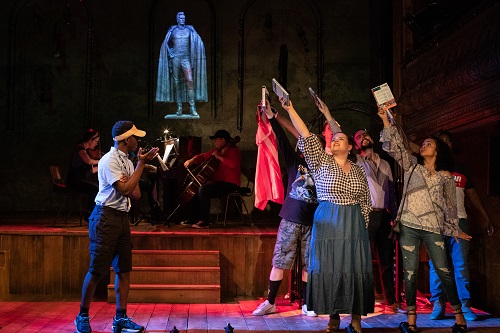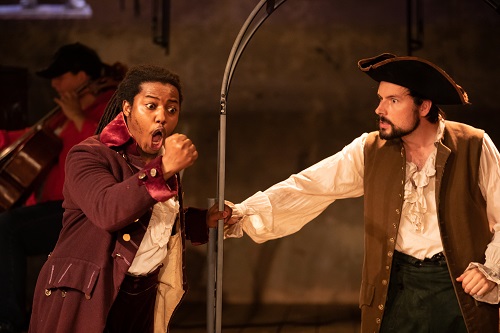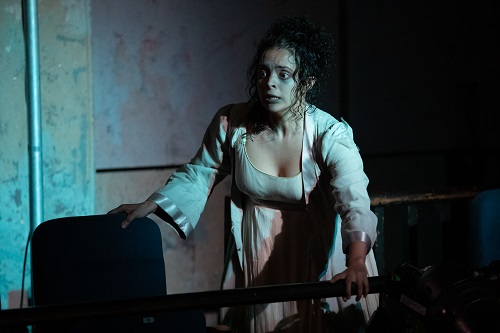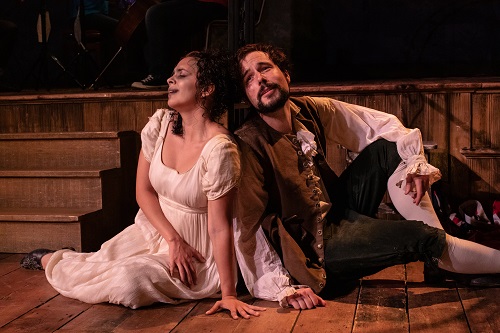Pierre Lafitte (1770-1821) is a figure of swashbuckling legend. The French-born New Orleans merchant mariner-cum-pirate and his brother Jean ran an illicit trading network in defiance of the American, Spanish and British authorities. Taking advantage of the port’s strategic position and the chaos of the Napoleonic Wars, they established a thriving smuggling racket, mainly in slaves, which outwitted officialdom and earned the brothers folk-hero status in Louisiana.
When war broke out between the US and Britain in 1812, the Lafittes threw in their lot with the US, turning down a pardon from the British which was offered in exchange for their collaboration in an assault on New Orleans. In December 1814, the brothers assisted Major General Andrew Jackson in defending the city, supplying men and munitions, with Pierre fighting bravely in the Battle of New Orleans in January 1815. Their promised clemency was delivered by President James Mason, but respectability made the brothers restless, and they took to the high seas once more in 1817, to maraud Spanish merchant ships. Their piracy did not have a propitious conclusion: Pierre died from a fever while hiding from the Spanish on the Mexican peninsula of Yucatan.
Fact was made into fiction by author and playwright Nan Bagby Stephens, when she fashioned a libretto for a one-act chamber opera for her friend Amy Beach (1867-1944), the title of which, Cabildo, intrigues the characters at the start of the opera. “Cabildo, Cabildo. What does it mean?” they cry. The Cabildo was the seat of Spanish colonial city hall and courtroom of New Orleans. In the opera’s Prologue, a group of tourists, including the newlyweds Mary and Tom, follow the tour guide (known as the Barker) through the Spanish governor’s palace to the cell where the notorious ‘gentleman pirate’, Pierre Lafitte, was imprisoned during the War of 1812. The Barker tells the story of Pierre and his beloved Lady Valerie; when he leads the group to another part of the Cabildo, Tom and Mary linger, but as they sing of their happiness Mary wonders how Pierre managed to escape. When Tom follows the other tourists, she stays in the cell and falls asleep. Her ensuing dream reveals the answer.

Beach’s marriage to the socially well-connected physician, Dr H.H.A. Beach, saw her retire from a flourishing professional career as a concert pianist and focus on composition. Her sole opera was composed in 1932, at a time when Beach was exploring the music of her native land, both folksongs and spirituals, and integrating such sources into her compositions. One Creole-influenced melody, to which she initially set a poem by Elizabeth Barrett Browning – ‘When soul is joined to soul’ Op.62, dedicated to the soprano Emma Eames – reappeared in Cabildo, sung by Valerie, alongside other Creole themes which Beach uses to tell this American tale.
Cabildo was not performed in Beach’s lifetime. The first performance was given by the Opera Workshop at the University of Georgia in Athens on 27th February 1945, two months after the composer’s death. Other student productions followed, but the professional premiere of Cabildo had to wait until 13th May 1995, at the Lincoln Centre. The UK premiere did not take place until the 2019 Grimeborn festival and that production, directed by Emma Jude Harris, has now been brought to Wilton’s Music Hall in the East End of London.

Nan Bagby Stephens’ libretto is not particularly dramatic and somewhat gauchely straddles the past and present. Mary’s dream reveals Lafitte in his cell, falsely convicted of having sabotaged his own ship – thereby causing the death of Lady Valerie – and awaiting execution. Valerie’s ghost visits Pierre, telling of the actions of one of his own men that resulted in her drowning, and urging him to join General Jackson to defeat the British and clear his own name. As she departs, she leaves the door to the cell open. In the Epilogue, Tom returns to the cell, looking for Mary who tells him of her dream and insists that it was the love of Lady Valerie, and not the General’s reward, that made Lafitte a hero.
But, whatever its dramatic short-comings, Stephens’ narrative is focused and clear, and Wilton’s is the perfect venue for this rather cliched story-within-a-story. In Emma Jude Harris’s production, the modern dress of the disaffected tourists who visit the New Orleans prison is superseded by the incarcerated pirates’ period costumes, and the ambience of the auditorium effected a time-travelling enchantment. More than this, the production seeks to question how we tell our national and historical stories, how we relate to them from a modern perspective, and this interrogation was made more piquant by the historical venue.

Harris and set/costume designer Zoë Hurwitz capture both the modern and historical realism, and the gothic melodrama of the tale, the latter enhanced by Lucy Adams’ effective lighting. Swivelling his baseball cap-peak and steeling himself for the arrival of his unsophisticated temporary wards, Tashinga Bepete’s jaded Barker deftly balanced a ringer-master’s faux enthusiasm with some pointed, sardonic sideswipes. The spoken dialogue was unobtrusively miked, creating an immediacy and directness which made for an effective contrast with the naïve vision of the sung voices. Despairing of the tourists’ indifference, Bepete gauded his charges when they marvelled at the bullet holes in the walls – “Those were the days! More’n a hundred years ago, before Prohibition, before Chicago was thought of — when New York was a village, New Orleans had her bullet-holes!” – and sharply reminded them to “Read your guidebooks” when their attention wandered. When the tourists gawped, “Pierre Lafitte was a Pirate!/ He sunk ships and he killed people!”, Bepete delivered the libretto’s best line with droll resignation: “That’s what the Governor said. But he was a politician. What can a politician say about a Pirate?”
Beach’s score effectively distinguishes between the characters and differentiates the pairs of beloveds. Peter Martin revealed the no-nonsense Tom’s lack of empathy while Helen Stanley was both naïve and engaging as she relived both the joys and sorrows of Lady Valerie and her pirate-prince. Stephens’ verse is at times banal, but Martin and Stanley communicated the charm of the folky lyricism of Tom and Mary’s expressions of devotion, “Today and tomorrow, together we’ll weather, we’ll weather the sea, and when we come home, we’ll come home together – whatever the journey, the journey may be!” At the close, Mary’s very real feeling – and personal transfiguration – was communicated profoundly by Stanley. The couple’s growing antipathy was a strong emotive force culminating in Mary’s disillusioned flinging aside of her wedding ring.

In contrast, the soaring music that Beach writes to express the love of Pierre and Valerie is ennobling. Kohl-eyed and blanched of complexion, Julieth Lozano appeared on the Wilton’s balcony, a hollowed figure with a voice lifted by haunting passion. Kieran Rayner’s Lafitte was transformed by her tragic presence, his previous light reflections now imbued with weight and hue.
Tenor Zwakele Tshabalala really impressed as Lafitte’s lieutenant, Dominique You, who tells Pierre that General Jackson will ensure his escape in return for his participation in breaking the British siege of New Orleans. Tshabalala’s shifts between chest-power and head-voice fragility were masterly, and dramatically potent. James Quilligan was an appealing drunken gaoler, both menacing and self-mocking. Raised on a platform behind the performers, Del Mar Piano Trio conveyed the responsiveness of the score to the unfolding stage action; there was much fine playing, and it was projected effectively.
Beach and Stephens sometimes lapse into mundanity and mediocrity, but Emma Jude Harris has made sure that the undoubtable highpoints rise to their potential peaks, aided by a terrific ensemble of singers and musicians who move naturally around the simple set, and sing with conviction and charisma. Harris reminds us that the stories we tell of the past also tell us much about our present, and our future.
Claire Seymour
Amy Beach: Cabildo Op.149. Presented by Emma Jude Harris in association with Jessie Anand Productions.
Barker – Tashinga Bepete, Tom – Peter Martin, Mary – Helen Stanley, Pierre Lafitte/ensemble – Kieran Rayner, Lady Valerie/ensemble – Julieth Lozano, Dominique You/ensemble – Zwakele Tshabalala, Gaoler/ensemble – James Quilligan; Director – Emma Jude Harris, Musical director – Yshani Perinpanayagam, Set and costume designer – Zoë Hurwitz, Lighting designer – Lucy Adams, Del Mar Piano Trio (Yshani Perinpanayagam (piano), Francesca Barritt (violin), Morwenna Del Mar (cello)).
Wilton’s Music Hall, London; Wednesday 8th September 2021.